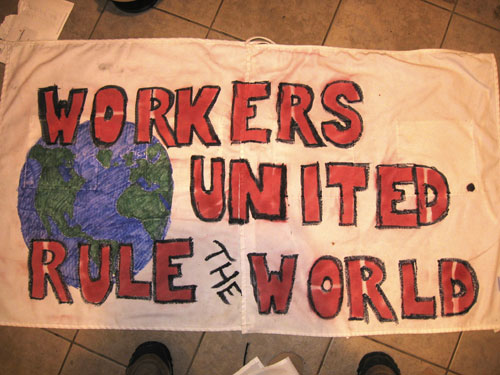Prisons are one of the most despicable endeavors in human history. Their continued existence adds corruption to our society. Imagine my surprise when I found out that in my new home of California, there’s no way to vote against the expansion of prisons.
An article in today’s Washington Post cites California’s bloated and overcrowded prison system as a warning for the rest of the country to place a continued emphasis on rehabilitation and not on punishment. 173,000 people are in jail in California, and to keep them there it costs the state $8 Billion a year.
The article tracks the history of California’s prison system: in the sixties and early seventies it was lauded for reforming prisoners, most notably by developing a system of indeterminate sentencing, to be judged by a parole board based on merit. All this changed in 1977.
In 1977, then-Gov. Jerry Brown (D), responding to a worries about rising crime, did away with indeterminate sentencing. Three years later, state lawmakers enacted legislation that said the purpose of incarceration was punishment alone, formally writing rehabilitation and treatment out of the penal code. (Brown is today running for state attorney general on a platform that calls for sentencing procedures that would lower prison population.)
Over the next decade, California’s legislature, dominated by Democrats, passed more than 1,000 laws increasing mandatory prison sentences. The climax came in 1994 with the enactment of the “three strikes” law mandating 25-years-to-life sentences for most offenders with two previous serious convictions. “People have this image of California beach politics and the left coast,” said state Sen. Gloria Romero, a Democrat from Los Angeles. “The truth is California is a law-and-order state.”
So where is a liberal Californian to turn if the Democrats are the ones sending everybody to jail? The Post places the blame for much of the current situation on the power of the correctional officer’s union:
“We sit down to the negotiating table, and we use our laptops. We all have one program,” said Joe Bauman, a correctional officer in Norco and a union negotiator. “Meanwhile, they’re using a calculator that you get free with a carton of cigarettes.”
Ironically it was the Republican Arnold Schwarzeneggar who ran a campaign promising to return rehabilitation to California’s prisons:
When he came into office on the back of an unprecedented recall of Davis in 2003, Schwarzenegger vowed to take on the union and bring California’s prison system into the modern world. On his second day in office, he appointed Ronald Hickman, a barrel-chested former prison guard with a reputation as a reformer, to lead the department. “Corrections,” Schwarzenegger said, “should correct.”
Last year, Hickman reorganized the state’s prison network and returned the word “rehabilitation” to the title of his agency for the first time since 1980. Schwarzenegger and Hickman subsequently announced a new parole program that they said would cut the prison population by an estimated 15,000 and vowed more changes.
But the parole plan bombed because it was poorly planned and badly executed and the prison officers unions fought it all the way, Hickman said in a recent interview. “We really didn’t do a very good job on implementation.”
For his part, Hickman quit in February after discovering that Schwarzenegger’s top aides had been meeting with union representatives behind his back.
And just so no one gets the idea that I’m soft on Republicans, insight into the effect of completely lawless prisons in a DailyKos post about three suicides in Guantanamo Bay. They come amid hunger strikes and hundreds of attempted suicides, a gerneral feeling of a hopelessness, an indefinite incarceration with no guaranteed rights at all.
So I percieve my present political choices thus: either a party of blind and fanatical devotion to law and order with little concern for the causes of crime, or a party that has lost respect for the law and instead places an emphasis on holding remarkable power against its enemies.
We would be well advised to remember the disaster of California’s own Stanford Prison Experiment.












